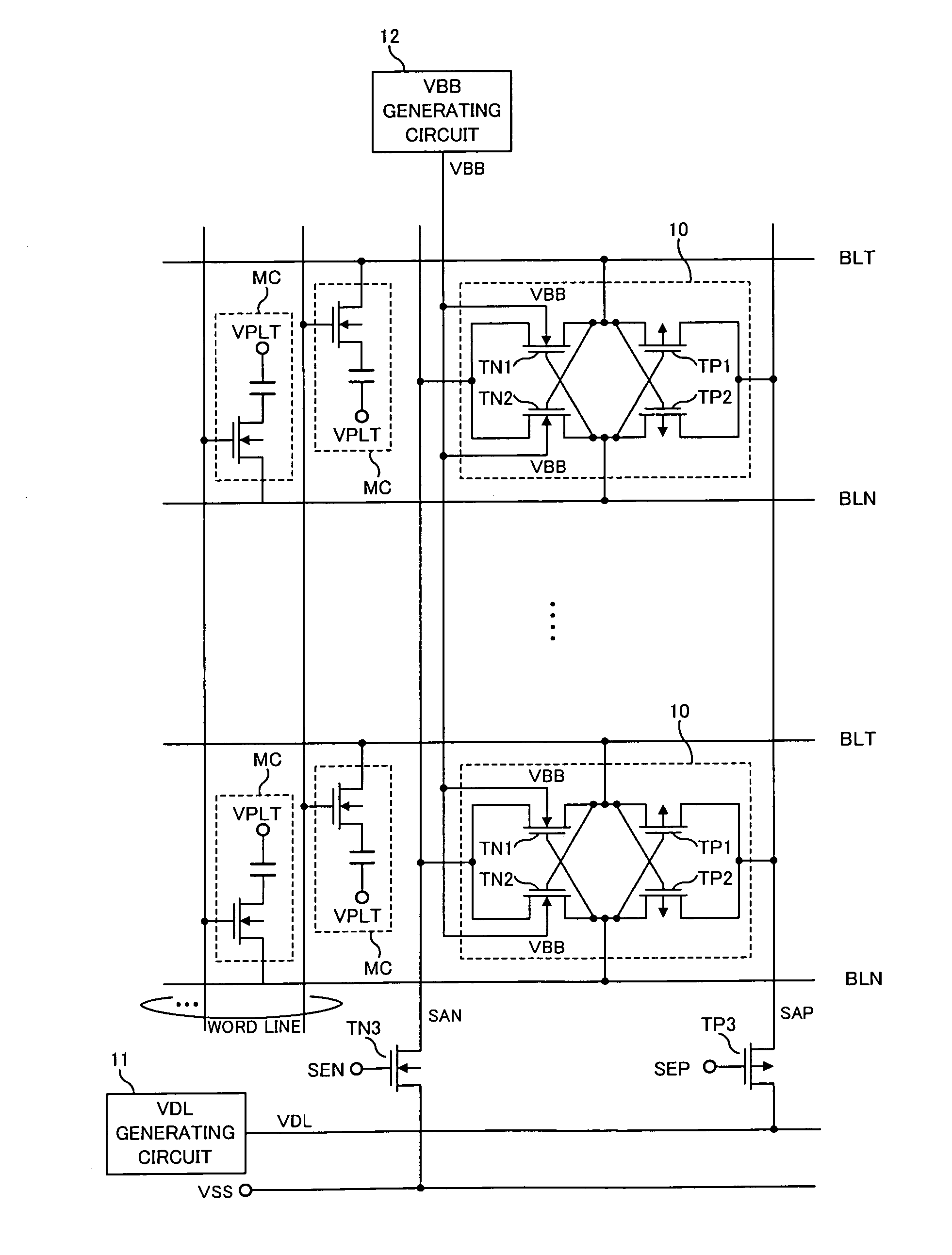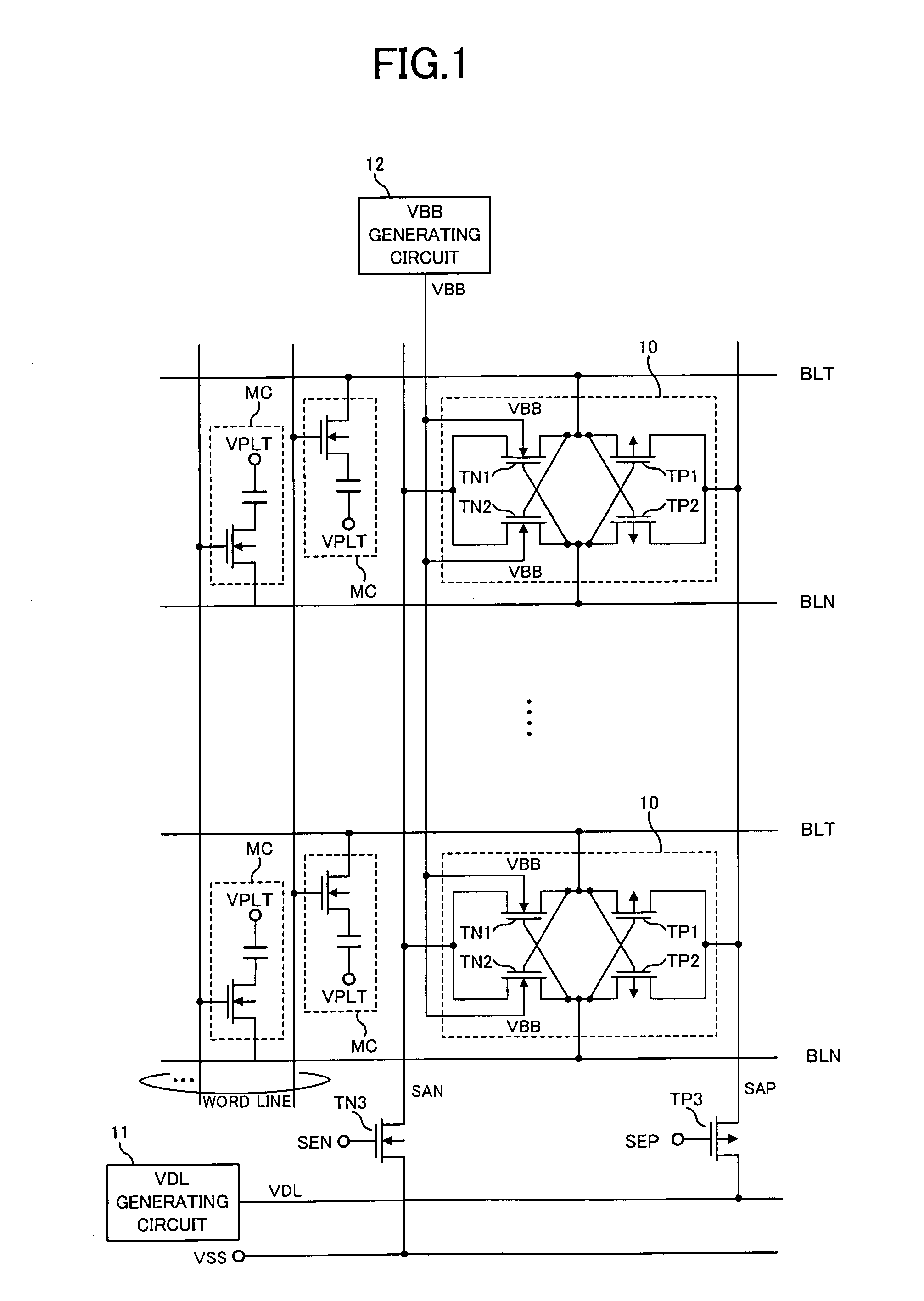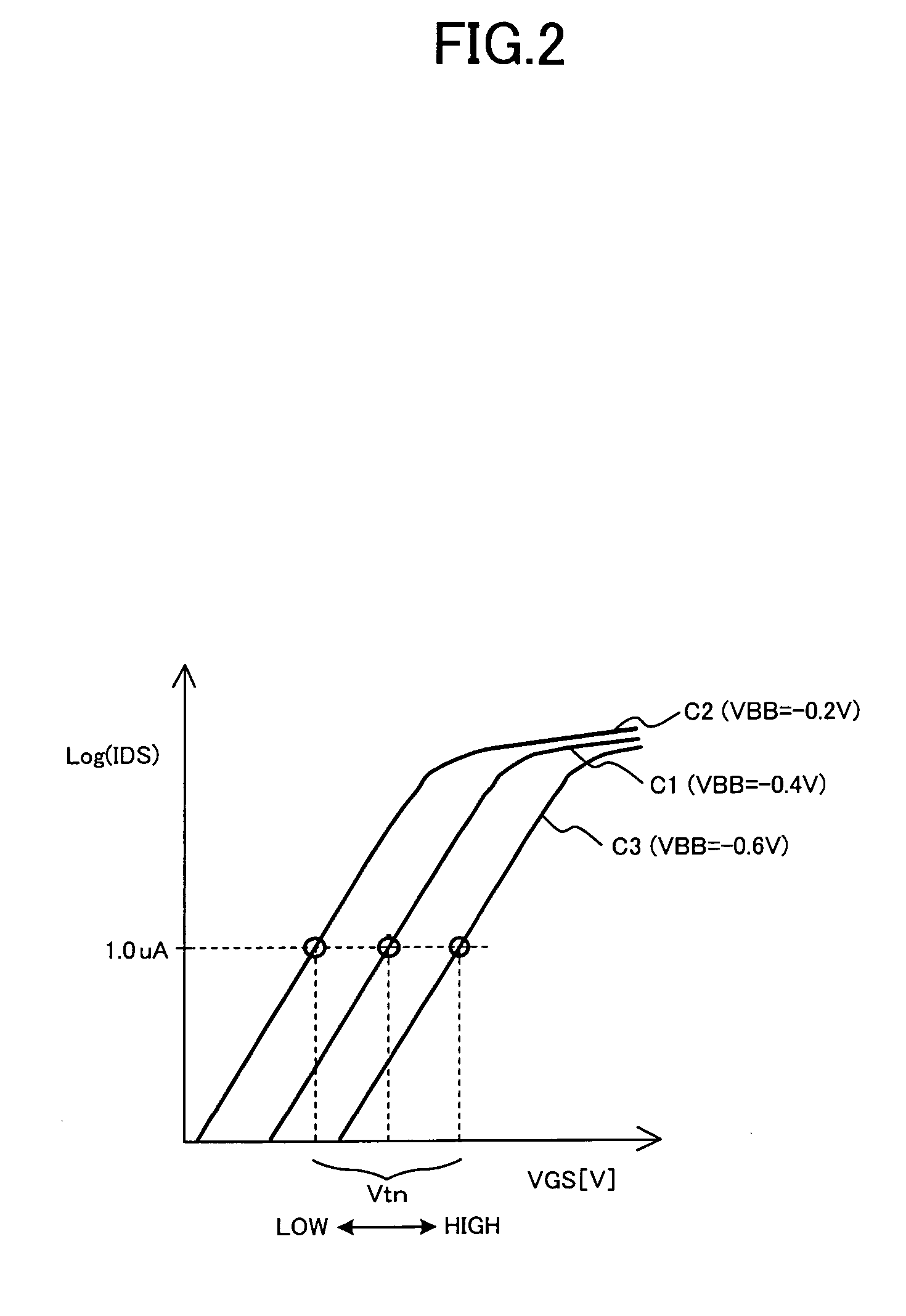Semiconductor memory device
a memory device and semiconductor technology, applied in information storage, static storage, digital storage, etc., can solve the problems of increasing affecting the stability of the vtp, and the difference of the bit line pair blt/bln, so as to reduce the fluctuation of the threshold voltage, the effect of sensing operation and reducing the possibility of sensing failur
- Summary
- Abstract
- Description
- Claims
- Application Information
AI Technical Summary
Benefits of technology
Problems solved by technology
Method used
Image
Examples
Embodiment Construction
[0038] An embodiment of the present invention will be described below with reference to accompanying drawings. In this embodiment, the case of applying the invention to DRAM as a semiconductor memory device is described.
[0039]FIG. 1 is a diagram showing a primary configuration of DRAM of this embodiment. In FIG. 1, in an entire memory array of the DRAM in which a plurality of bit lines and a plurality of word lines are arranged in a matrix form, a circuit portion in which the same configuration is repeatedly arranged corresponding to a bit line pair BLT / BLN as a complementary pair is shown. In the circuit configuration of FIG. 1, in addition to a memory cell MC, a sense amplifier 10 and a VDL generating circuit 11 which are structural elements nearly common to FIG. 1, a VBB generation circuit 12 is also included.
[0040] On each bit line pair BLT / BLN, a sense amplifier 10 composed of a pair of NMOS transistors TN1 and TN2 (first NMOS transistors of the invention) and a pair of PMOS ...
PUM
 Login to View More
Login to View More Abstract
Description
Claims
Application Information
 Login to View More
Login to View More - R&D
- Intellectual Property
- Life Sciences
- Materials
- Tech Scout
- Unparalleled Data Quality
- Higher Quality Content
- 60% Fewer Hallucinations
Browse by: Latest US Patents, China's latest patents, Technical Efficacy Thesaurus, Application Domain, Technology Topic, Popular Technical Reports.
© 2025 PatSnap. All rights reserved.Legal|Privacy policy|Modern Slavery Act Transparency Statement|Sitemap|About US| Contact US: help@patsnap.com



